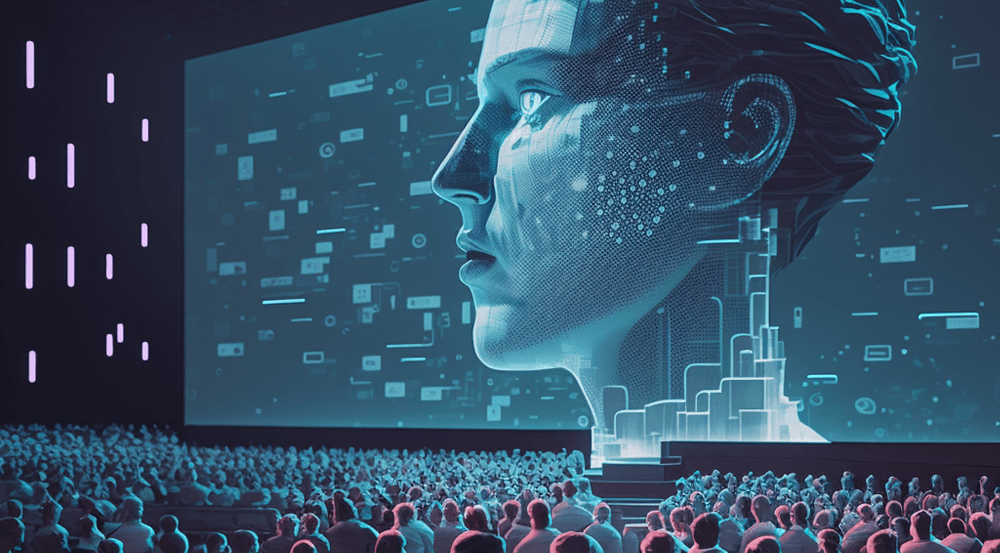AI Trends: Transforming the Future of Technology
Artificial Intelligence (AI) has emerged as a revolutionary force in the world of technology, significantly transforming various sectors and industries. As we venture further into the 21st century, the impact of AI continues to grow, bringing with it a plethora of trends that promise to shape our future. In this comprehensive article, we delve into the latest AI trends that are driving innovation and reshaping our world.
1. AI in Healthcare
Revolutionizing Medical Diagnosis and Treatment
AI has made significant strides in the healthcare industry, offering groundbreaking solutions that improve patient outcomes. Machine learning algorithms are now capable of analyzing vast amounts of medical data, leading to more accurate and timely diagnoses. AI-powered diagnostic tools can detect diseases such as cancer at earlier stages, increasing the chances of successful treatment. Additionally, AI is playing a crucial role in personalized medicine, where treatment plans are tailored to individual patients based on their unique genetic makeup and medical history.
Enhancing Healthcare Operations
Beyond diagnostics, AI is optimizing healthcare operations. AI-driven administrative tools streamline scheduling, patient management, and billing processes, reducing the burden on healthcare professionals and allowing them to focus more on patient care. Robotic process automation (RPA) is also being utilized to handle repetitive tasks, further improving efficiency within healthcare facilities.
2. AI in Finance
Algorithmic Trading and Financial Analysis
The finance sector has embraced AI to enhance trading strategies and financial analysis. Algorithmic trading utilizes AI to execute trades at optimal times, minimizing risks and maximizing returns. These AI systems analyze market trends and historical data to make informed decisions, often outperforming human traders. Moreover, AI-driven financial analysis tools provide deep insights into market conditions, helping investors make more informed decisions.
Fraud Detection and Risk Management
AI is revolutionizing fraud detection and risk management in the financial industry. Machine learning algorithms can identify patterns and anomalies in transactions, flagging potential fraudulent activities in real-time. This proactive approach to fraud detection helps financial institutions safeguard their assets and maintain customer trust. Additionally, AI is used in credit scoring and risk assessment, enabling more accurate evaluation of loan applicants and reducing default rates.
3. AI in Retail
Personalized Shopping Experiences
In the retail sector, AI is transforming the way consumers shop. AI-powered recommendation systems analyze customer preferences and purchase history to provide personalized product recommendations. This enhances the shopping experience and increases customer satisfaction. Retailers are also using AI to optimize inventory management, ensuring that popular products are always in stock while reducing overstock and waste.
Enhanced Customer Service
AI-driven chatbots and virtual assistants are improving customer service in the retail industry. These AI systems can handle customer inquiries, process orders, and provide support 24/7, offering quick and efficient service. By automating routine customer interactions, retailers can focus on more complex issues and improve overall customer satisfaction.
4. AI in Manufacturing
Predictive Maintenance and Quality Control
AI is playing a vital role in the manufacturing industry by enhancing predictive maintenance and quality control processes. Machine learning algorithms analyze data from sensors and machinery to predict when equipment is likely to fail, allowing for timely maintenance and reducing downtime. Additionally, AI-powered quality control systems can detect defects in products with high accuracy, ensuring that only top-quality items reach consumers.
Robotics and Automation
The integration of AI with robotics is revolutionizing manufacturing processes. AI-driven robots are capable of performing complex tasks with precision and speed, increasing production efficiency. These robots can work alongside human workers, handling repetitive or hazardous tasks and improving workplace safety.
5. AI in Transportation
Autonomous Vehicles
The development of autonomous vehicles is one of the most exciting AI trends in the transportation industry. Self-driving cars utilize AI to navigate roads, interpret traffic signals, and make real-time decisions to ensure safe travel. This technology has the potential to reduce traffic accidents, lower transportation costs, and provide mobility solutions for people with disabilities.
Optimizing Logistics and Supply Chains
AI is also transforming logistics and supply chain management. Machine learning algorithms analyze data from various sources to optimize routing, reduce fuel consumption, and improve delivery times. AI-powered logistics systems can predict demand patterns, allowing companies to manage inventory more effectively and reduce operational costs.
6. AI in Education
Personalized Learning
AI is revolutionizing education by offering personalized learning experiences. AI-driven educational platforms adapt to the learning pace and style of each student, providing customized content and resources. This individualized approach enhances student engagement and improves learning outcomes.
Automating Administrative Tasks
In the education sector, AI is streamlining administrative tasks such as grading, attendance tracking, and scheduling. This automation frees up time for educators, allowing them to focus on teaching and mentoring students. Additionally, AI-powered analytics provide insights into student performance, helping educators identify areas where students may need additional support.
7. AI in Customer Service
Chatbots and Virtual Assistants
AI-powered chatbots and virtual assistants are transforming customer service across various industries. These AI systems can handle a wide range of customer inquiries, provide support, and resolve issues quickly and efficiently. By automating routine interactions, businesses can improve response times and enhance customer satisfaction.
Sentiment Analysis
AI is also being used for sentiment analysis, allowing companies to understand customer feedback and sentiments expressed on social media and other platforms. AI-driven sentiment analysis tools analyze text data to identify positive, negative, or neutral sentiments, helping businesses gain valuable insights into customer opinions and improve their products and services.
Conclusion
The rapid advancement of AI is driving transformative changes across multiple industries. From healthcare and finance to retail and manufacturing, AI is revolutionizing processes, improving efficiency, and enhancing customer experiences. As AI technology continues to evolve, we can expect even more innovative applications and trends to emerge, further shaping the future of technology and society.


